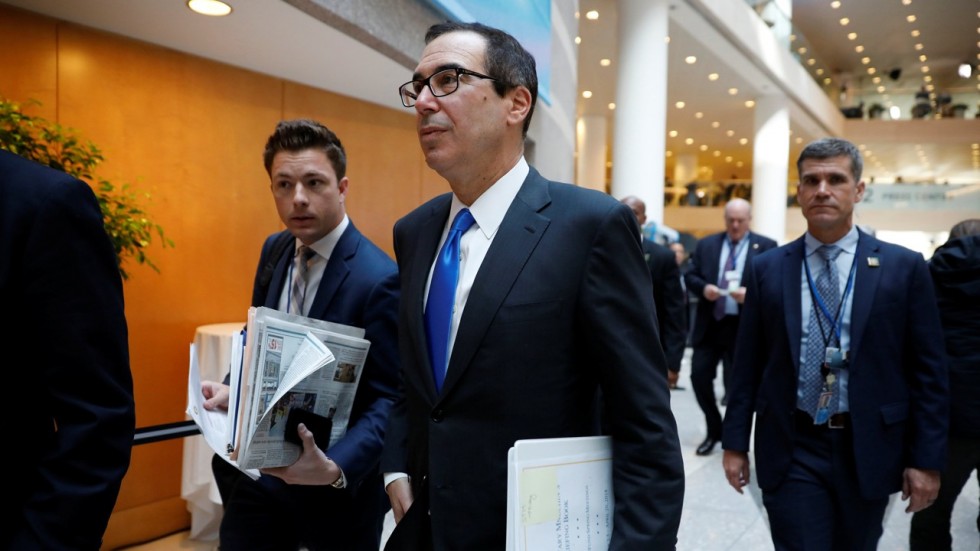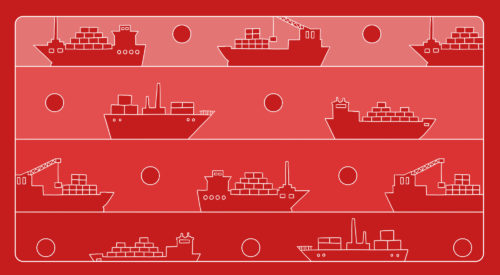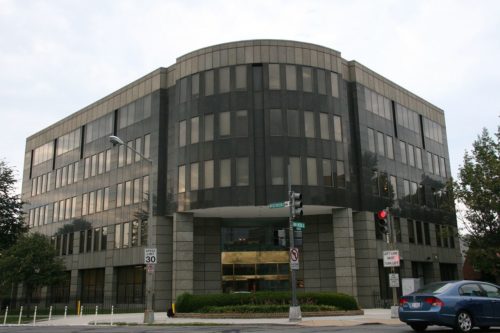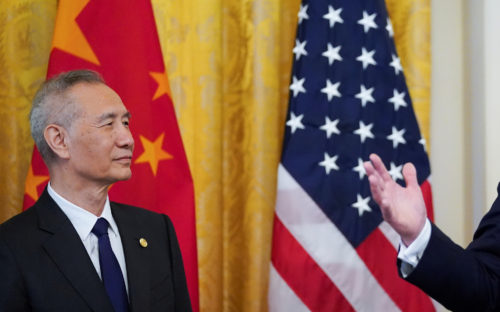Trade war, day 69: More talks proposed, but no signs of structural change

The U.S. Treasury Department, led by Steven Mnuchin, is again attempting to find a deal on trade with China.
- “The Trump administration is reaching out to China for a new high-level round of trade talks, in an effort to give Beijing another opportunity to address U.S. concerns before it imposes new tariffs on Chinese imports, said people briefed on the matter,” the Wall Street Journal reports (paywall).
- The Journal says that “President Trump has authorized Mr. Mnuchin to try to get trade talks with Beijing back on track,” and that Mnuchin is joined by chief economic adviser Larry Kudlow in his intention to find “a near-term settlement out of concerns that a protracted battle with China could batter financial markets.”
- But “the U.S. trade representative’s office headed by Robert Lighthizer, which is in charge of tariffs, wants to hold off on negotiations, arguing that additional levies would give the U.S. more bargaining power in the dispute.”
- The invitation by Mnuchin to his counterpart, Liu He, was confirmed (paywall) by Bloomberg, which noted that this would be the fifth time that Trump administration officials have formally sat down with Chinese counterparts to discuss trade.
The Journal then reported (paywall) that stocks rose in response to its report — the Dow added “170 points, or 0.6%” — including that “trade-sensitive industrial and materials stocks rallied on the latest signs that the U.S. is willing to compromise on trade.”
- But the U.S. is not necessarily expressing willingness to compromise here — it is instead, in the Journal’s own words, “an effort to give Beijing another opportunity to address U.S. concerns before it imposes new tariffs on Chinese imports.”
- The last time that Steven Mnuchin and Liu He directly negotiated, back in May, it ended in spectacular failure, leading to deep grievances on both sides.
- That’s because China failed to address core American complaints about Chinese economic practices: alleged IP theft, coerced technology transfer, Chinese market protectionism, and state-heavy economic development, exemplified by the Made in China 2025 initiative.
The Made in China 2025 initiative is not slowing down, according to the South China Morning Post:
- State-owned enterprises — exactly the part of China’s economy that Washington considers most suspect in conducting unfair economic practices — will feature prominently in an upcoming conference due to convene sometime in late September in Beijing, the SCMP reports.
- At that unnamed conference, Liu He is expected to urge SOEs to “‘make breakthroughs in key aspects’ of cutting-edge technologies and call on them to ‘take a leading role at the front’ of the country’s drive to make technological progress” — aka the Made in China 2025 initiative.
These structural factors — American brinkmanship and disunity in the Trump administration, and unchanged Chinese economic practices with regards to Made in China 2025 — seem likely to sink any further round of negotiations in the near future. At the same time, there are conflicting signals being reported from China:
- That same Liu He went on a charm offensive last month, the Wall Street Journal reports (paywall), telling American business representatives, “We won’t allow retribution against foreign companies.”
- But American companies are already being pinched, according to Jacob Parker, vice president for China operations of the U.S.-China Business Council, the AP says.
- In banking, insurance, asset management, and more — areas that China has promised to liberalize — officials are delaying licensing for American companies “until the trajectory of the U.S.-China relationship improves and stabilizes,” Parker says the Business Council has been told.
Other trade war links:
- Chinese elite perspective
中美贸易摩擦下,我们和美国精英举行了一次闭门会谈 / iFeng
“Amid U.S.-China trade friction, I had off-the-record talks with America’s elite” is the title of this essay by Wang Wen of the Chongyang Institute for Financial Studies, Renmin University of China. Wang recounts how he and a small delegation of scholars and former officials visited the U.S. in late August, and stopped in at think tanks such as the Asia Society and the Brookings Institution, and met with figures such as Henry Kissinger. As summarized (paywall) by Bill Bishop, Wang “seems surprised at the depth of anger and enmity towards China, puts a lot of emphasis on China improving its external messaging, and wants a lot more former PRC officials involved in U.S.-China exchanges…and says Chinese should hope for the best but prepare for the worst in U.S.-China relations.” - Opposition to Trump’s tariffs — “Tariffs Hurt the Heartland”
U.S. businesses ramp up lobbying against Trump’s tariffs / WSJ (paywall)
“On Wednesday, organizations representing thousands of companies in industries including retailing, toy manufacturing, farming and technology plan to announce they are cooperating on a lobbying campaign called Tariffs Hurt the Heartland to oppose tariffs on imports.” - Shifting supply chains
Chinese companies flee overseas to avoid US tariffs / AFP via Daily Monitor
“A growing number of Chinese companies are adopting a crafty way to evade US President Donald Trump’s tariffs: remove the ‘Made in China’ label by shifting production to countries such as Vietnam, Serbia and Mexico.”
Trade wars complicate Dyson electric car plant site / FT (paywall)
“Global trade tensions have made the final decision on location and the sourcing of parts ‘a lot more turbulent,’ Jim Rowan, Dyson’s global chief executive, told the Financial Times.”
“Dyson’s warning comes days after Chinese carmaker Geely postponed a $30bn initial public offering of Volvo Cars, citing uncertainties flowing from the global trading environment.” - Rhetoric from Chinese politicians
Chinese vice-premier condemns protectionism as Beijing prepares to counter Donald Trump’s new tariffs threat / SCMP
“Chinese vice-premier Hu Chunhua has called for a rejection of protectionism and said unilateral trade policies by some countries posed a ‘most serious hazard’ to the world economy.”
Previously in The China Project’s trade war coverage:
https://thechinaproject.com/2018/09/11/trade-war-day-68-the-risk-of-china-and-the-us-sliding-into-a-new-cold-war-is-increasing/






